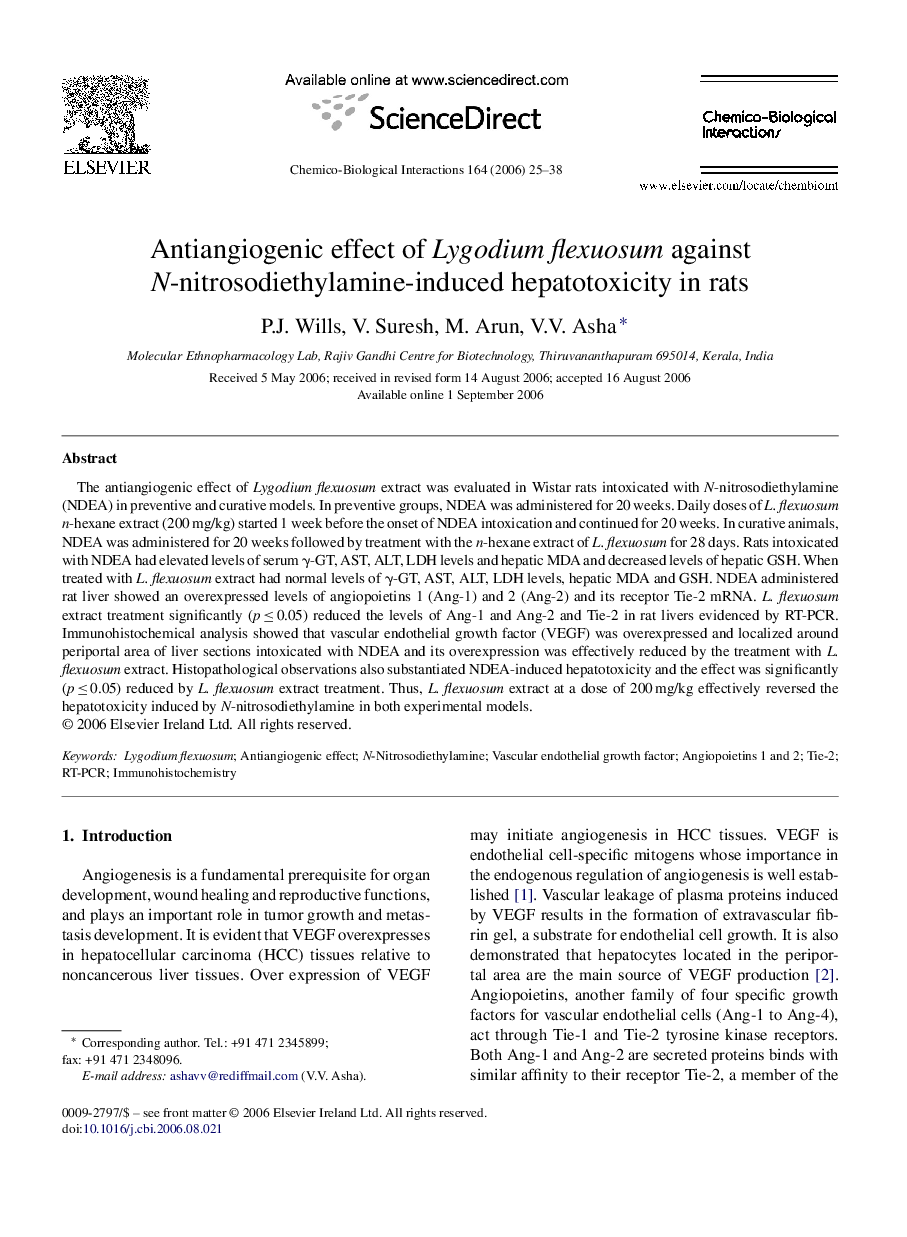| Article ID | Journal | Published Year | Pages | File Type |
|---|---|---|---|---|
| 2582286 | Chemico-Biological Interactions | 2006 | 14 Pages |
The antiangiogenic effect of Lygodium flexuosum extract was evaluated in Wistar rats intoxicated with N-nitrosodiethylamine (NDEA) in preventive and curative models. In preventive groups, NDEA was administered for 20 weeks. Daily doses of L. flexuosumn-hexane extract (200 mg/kg) started 1 week before the onset of NDEA intoxication and continued for 20 weeks. In curative animals, NDEA was administered for 20 weeks followed by treatment with the n-hexane extract of L. flexuosum for 28 days. Rats intoxicated with NDEA had elevated levels of serum γ-GT, AST, ALT, LDH levels and hepatic MDA and decreased levels of hepatic GSH. When treated with L. flexuosum extract had normal levels of γ-GT, AST, ALT, LDH levels, hepatic MDA and GSH. NDEA administered rat liver showed an overexpressed levels of angiopoietins 1 (Ang-1) and 2 (Ang-2) and its receptor Tie-2 mRNA. L. flexuosum extract treatment significantly (p ≤ 0.05) reduced the levels of Ang-1 and Ang-2 and Tie-2 in rat livers evidenced by RT-PCR. Immunohistochemical analysis showed that vascular endothelial growth factor (VEGF) was overexpressed and localized around periportal area of liver sections intoxicated with NDEA and its overexpression was effectively reduced by the treatment with L. flexuosum extract. Histopathological observations also substantiated NDEA-induced hepatotoxicity and the effect was significantly (p ≤ 0.05) reduced by L. flexuosum extract treatment. Thus, L. flexuosum extract at a dose of 200 mg/kg effectively reversed the hepatotoxicity induced by N-nitrosodiethylamine in both experimental models.
